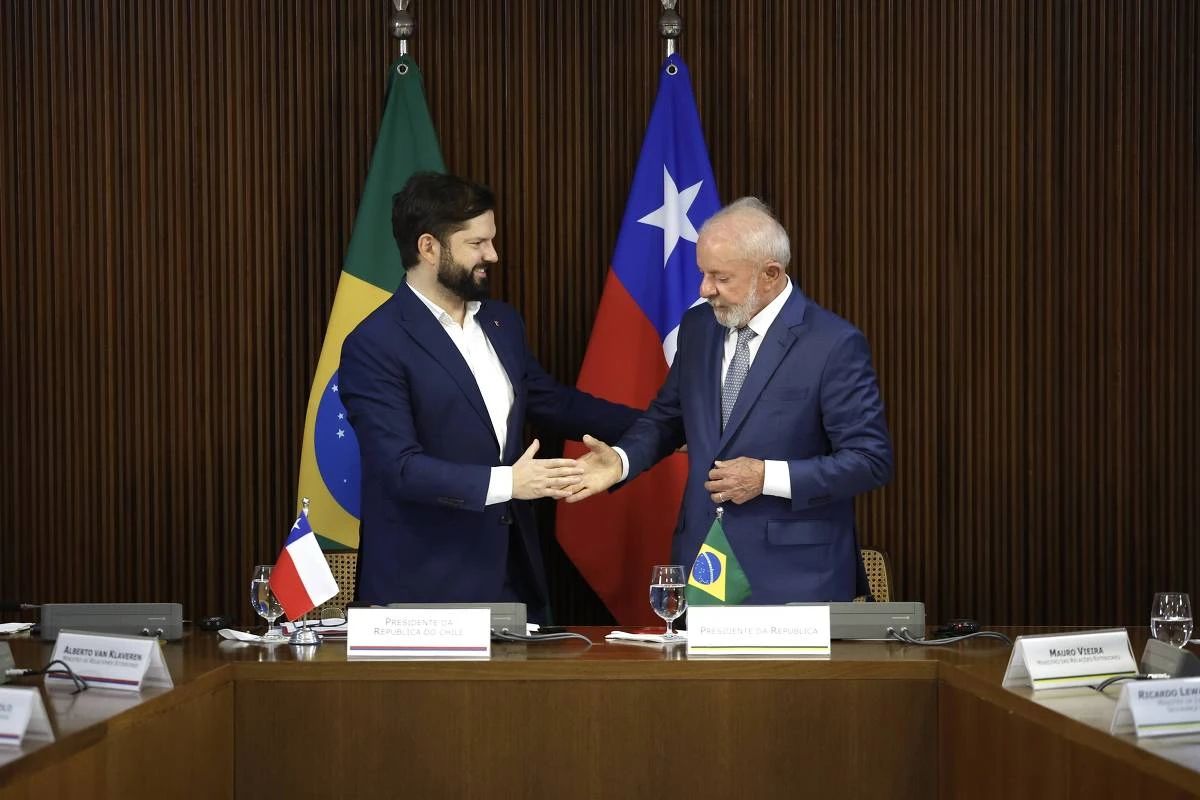
Chilean President Gabriel Boric visited Brasília on April 22nd and 23rd. The delegation accompanying him includes Chilean ministers, legislators, governors, and entrepreneurs, aiming to strengthen bilateral relations and deepen trade and investment cooperation between the two countries.
During meetings with Brazilian President Lula and his cabinet members, the focus will be on discussing the "South Return Line Bi-Oceanic Corridor" project, connecting Brazilian Atlantic coast ports with Chilean Pacific coast ports. This corridor will link ports such as Santos in São Paulo state, Paranaguá in Paraná state, Rio Grande do Sul, and Itajaí in Santa Catarina state on the Atlantic coast, passing through Paraguay and Argentina, and ultimately reaching ports like Iquique, Mejillones, and Antofagasta on the Chilean Pacific coast.
George Vianna, President of the Brazilian Trade and Investment Promotion Agency (ApexBrasil), pointed out that despite the good historical relationship between the two countries, there is still significant potential for cooperation improvement. He emphasized that Brazil needs to open its doors to Chile's extensive production chain and called for both sides to promote decentralized exports and increase the share of high-value-added products in bilateral trade.
During this visit, the two countries will jointly celebrate "Brazil-Chile Friendship Day." This commemorative day stems from the establishment of diplomatic relations between the two countries on April 22, 1836, officially reaffirmed during President Lula's visit to Chile in August last year. The Chilean Foreign Ministry stated that this visit will focus on promoting the construction of the Bi-Oceanic highway corridor with logistical and commercial integration potential, with the aim of deepening economic cooperation. This corridor will help Brazil utilize Pacific coast ports to increase exports of grains, soybeans, meats, and other agricultural products to China and other Asian countries, while reducing shipping time and costs to China and other Asian countries via Atlantic coast ports.
At Boric's proposal, a special seminar will be held during the meeting of the two heads of state to evaluate the economic and trade impacts of the Bi-Oceanic Corridor connecting the Atlantic and Pacific ports of South America. The Brazilian government expects this project to be completed during Lula's term in office.
Brazil is Chile's third-largest trading partner, after China and the United States, while Chile is Brazil's sixth-largest export market. Despite a 16.2% decrease in Brazil's exports to Chile to $6.658 billion in 2024 (accounting for 1.98% of Brazil's total exports), Chile's exports to Brazil grew against the trend by 14.8% to $4.952 billion. Bilateral trade totaled $11.61 billion (a 5.3% decrease), resulting in Brazil achieving a surplus of $1.705 billion with Chile.
First-quarter 2025 data shows a slight 0.2% decrease in Brazil's exports to Chile to $1.563 billion (Chile ranks as Brazil's eighth-largest export market), while Chile's exports to Brazil increased by 14.8% to $1.213 billion, resulting in a bilateral trade volume of $2.776 billion, with Brazil maintaining a surplus of $351 million.
Brazil's main exports to Chile include crude oil ($424 million, a 21% decrease), beef ($162 million), freight vehicles ($72 million), pork ($58 million), and industrial manufactured goods ($55 million). Chile's main exports to Brazil include copper ($561 million), seafood ($225 million), base metal ores ($72 million), industrial manufactured goods ($42 million), and spirits ($40 million).
The Brazilian government stated that there is a need to activate bilateral trade vitality and promote the transformation of exports to Chile from primary products to diversified high value-added goods. With further advancement of the Bi-Oceanic Corridor project, this trade artery connecting South America's Atlantic and Pacific ports may reshape the regional economic landscape.
